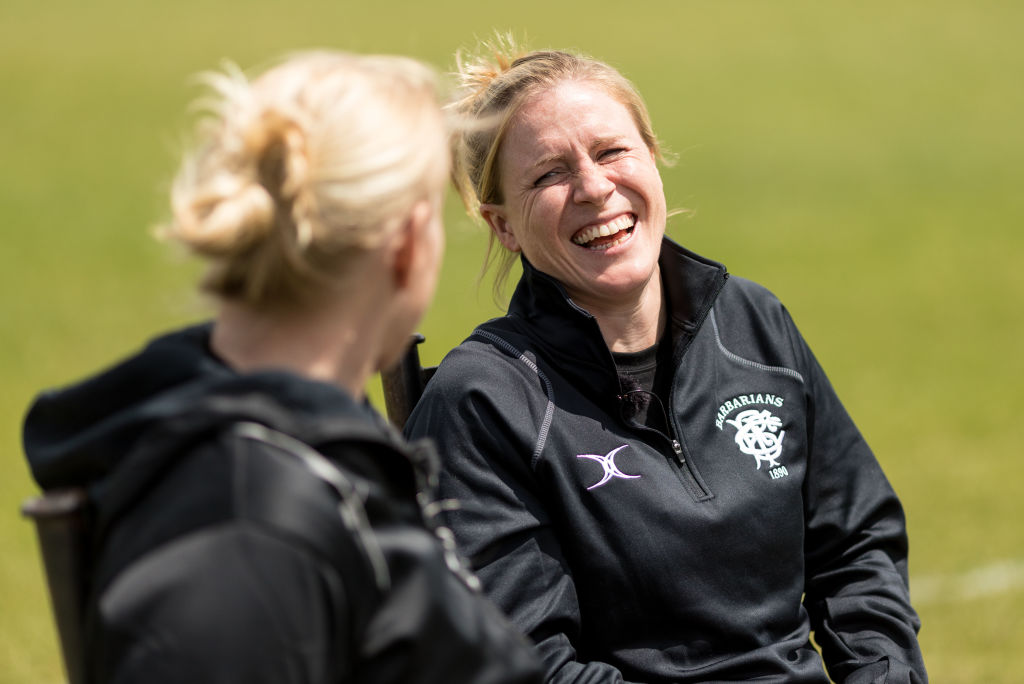Danielle Waterman: ‘We’ve done it because it needed doing’

“We’ve done it because it needed doing,” says World Cup winning former England full-back Danielle Waterman of her decision to establish the Women’s Rugby Association.
“During the last part of my international career, I was supported by the RPA [Rugby Players’ Association]. They stepped in with some critical advice around support and contracts.
“A catalyst for this, though, came after Alisha Butchers asked for support from a GoFundMe page after getting injured.”
Butchers, 23, had her ankle operation part-funded by her club, Bristol Bears Women, but was unaware her contract stipulated that the club’s insurance would not cover all of the treatment.
The Women’s Rugby Association aims to help cases like Butchers’ by providing advice to England’s women’s rugby players on contractual and commercial matters, medical provision and educational support on welfare and career management.
It arrives at a time when the women’s game is on the rise. The Premier 15s, England’s domestic league, is seeing tougher and tougher games while the national side are on an 18-match unbeaten run.
“Everyone is talking about the professionalism of the game,” adds Waterman, widely known as Nolli and a regular TV pundit since retiring last year.
“Yes, that’s one element – being an independent source of support for the girls legally, to have their contracts looked at and to be able to discuss and ask questions.
“But it’s actually a lot about educating the players to be able to ask the right questions themselves.
“It’s not about stepping in when there’s a problem, it’s about being proactive and understanding what you’re saying. It’s about being part of the conversation of what a contract looks like moving forward.”
Waterman is chief executive of the new union, which will also see a player representative from each club involved. There will be a chair, vice chair and directors too.
“At the moment, club contracts vary quite significantly from club to club, and I think what’s important is to be able to provide the players with an opportunity to each other to create a network with the board around concerns,” Waterman says.
“That’s not necessarily divulging all of the details from within contracts, but it’s actually what we should expect on a minimum standard and then how to maintain that.
“To be perfectly honest, I think there’s always an assumption of women’s sport at the top level being further ahead than it actually is.
“I think that’s why the Alisha Butchers situation on social media had an impact. It had an impact on [co-founders] Emma Lax, Polly Barnes and Holly Hammill because they just assumed that help on operations was a basic thing.
“It’s not about calling out individual clubs, it’s about pointing out the reality.”
The Women’s Rugby Association will provide a support system for the rapid professionalisation of the women’s game in England. Waterman says the move has already been warmly welcomed.
“What’s been most inspiring is that people who are involved in rugby, really passionate about the game but not really ever had too much of a link with the women’s game, are volunteering their time,” she adds. “It’s been incredible.”
More information can be found at www.womensrugbyassociation.co.uk